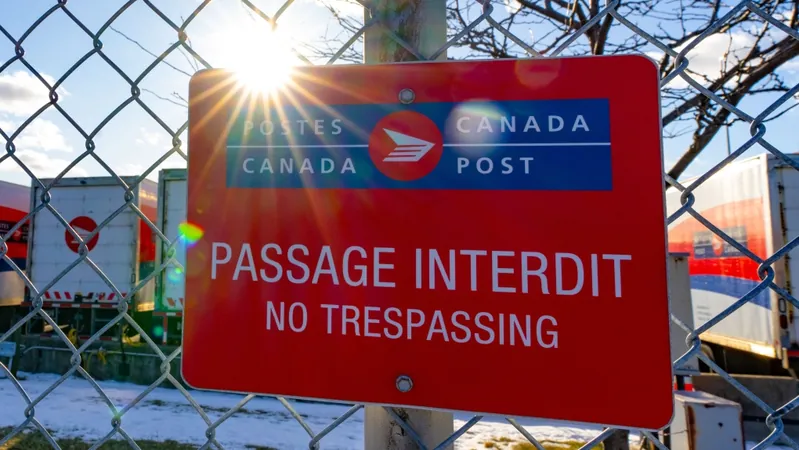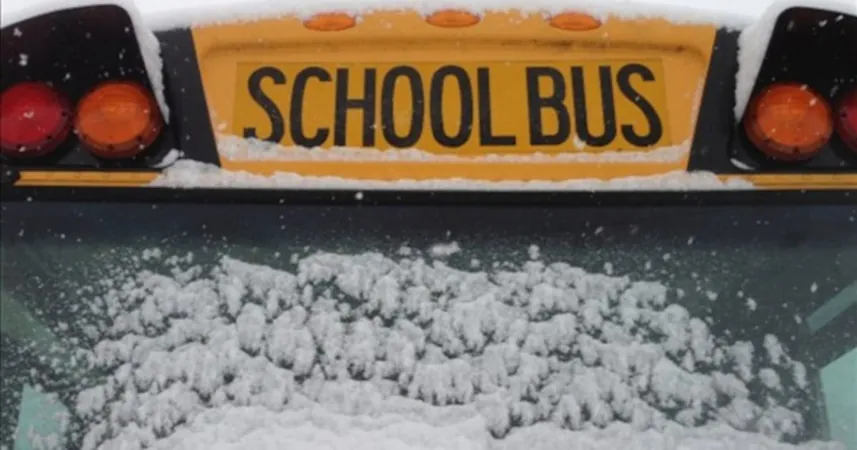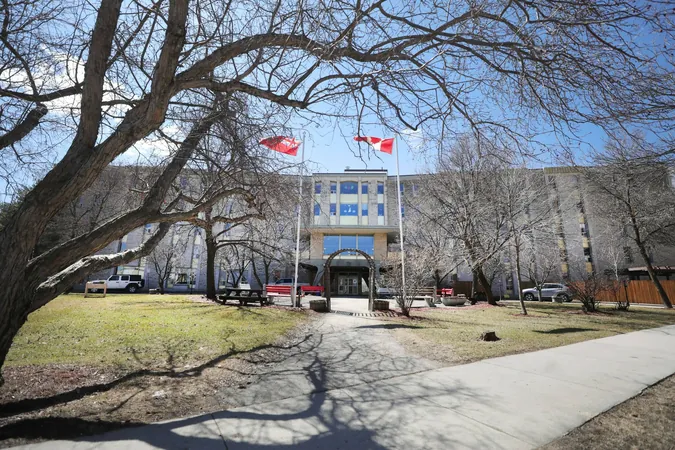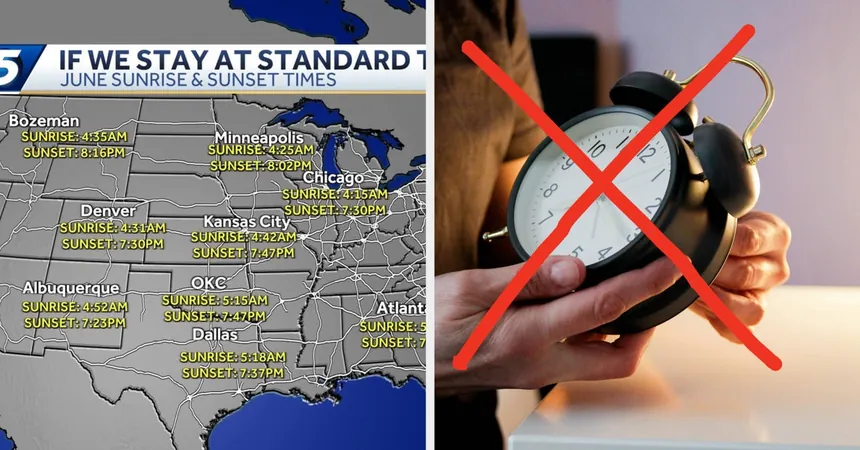
Canada Post Union Negotiator Challenges Labour Minister's 'Time-Out' Request Amid Strike Stalemate
2024-12-14
Author: Olivia
Canada Post Strike Overview
In a surprising turn of events, Labour Minister Steven MacKinnon declared a “time-out” in the ongoing strike involving Canada Post, which has been affecting postal services for over a month. While he may have meant well, the Canadian Union of Postal Workers (CUPW) negotiator, Jim Gallant, took issue with this characterization.
“I feel like he’s treating us like children,” Gallant stated during an interview on CTV Power Play. His sentiments reflect the frustration felt within the union as negotiations seem to stall.
Government's Intervention
On Friday, MacKinnon announced his intention to involve the Canada Industrial Relations Board (CIRB) in the negotiations, suggesting they assess the likelihood of reaching a negotiated agreement by the end of the year. In frightening terms for CUPW, he hinted that if the outlook seemed bleak, the union could be ordered back to work.
“The Government of Canada places great importance on collective bargaining,” MacKinnon said, indicating that the current state of affairs is far from ideal. Describing the conflict as having reached a “critical point,” he stated the necessity for intervention to prevent further deterioration of the situation.
CUPW's Concerns
Should the CIRB side with the government, existing employment conditions could be extended until May 2025, prompting Gallant to express concern over the long-term impacts of such a ruling. “If we were to go back out on strike, the public and our members would not accept that twice in a year,” he warned.
As the labour dispute drags on, the union recently made concessions on wage demands, yet Canada Post continues to label these requests as “unaffordable and unsustainable.” The postal service has been facing significant financial challenges, leading to tensions that seem to stymie negotiations.
Historical Context
This situation isn’t unprecedented; the federal government previously intervened in a CUPW strike in 2018, where legislation was passed to end weeks of rotating strikes, culminating in the workers returning to their jobs about a month after the action commenced.
Pattern of Government Intervention
In light of recent developments, CUPW’s statement pointed to a troubling pattern whereby the government utilizes its power to disrupt what they consider “good faith” bargaining efforts between unions and employers.
“It throws a bucket of water on negotiations for all unions in the country,” Gallant commented, emphasizing that continued government intervention undermines collective bargaining processes.
Conclusion and Future Outlook
As dialogue appeared to dissolve into the realm of uncertainty, Gallant expressed his disappointment with the current strategy being employed by the Labour Minister. “You’re always at an impasse until you have a deal,” he concluded. As tensions mount and with potential CIRB actions on the horizon, the future of postal workers and services hangs in the balance. Will this strike finally find resolution, or is the real fight just beginning? Stay tuned!









 Brasil (PT)
Brasil (PT)
 Canada (EN)
Canada (EN)
 Chile (ES)
Chile (ES)
 España (ES)
España (ES)
 France (FR)
France (FR)
 Hong Kong (EN)
Hong Kong (EN)
 Italia (IT)
Italia (IT)
 日本 (JA)
日本 (JA)
 Magyarország (HU)
Magyarország (HU)
 Norge (NO)
Norge (NO)
 Polska (PL)
Polska (PL)
 Schweiz (DE)
Schweiz (DE)
 Singapore (EN)
Singapore (EN)
 Sverige (SV)
Sverige (SV)
 Suomi (FI)
Suomi (FI)
 Türkiye (TR)
Türkiye (TR)